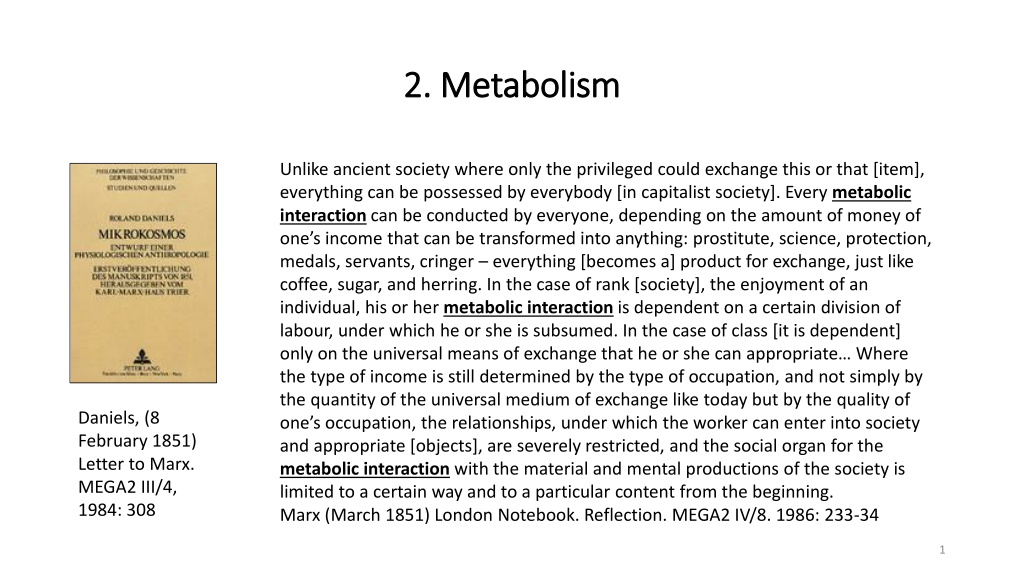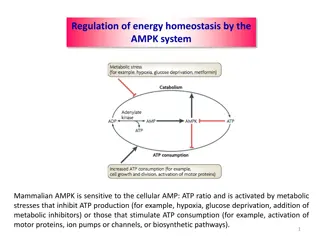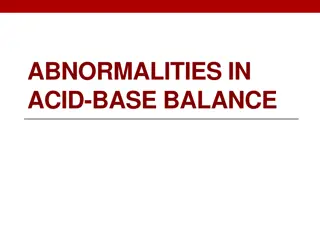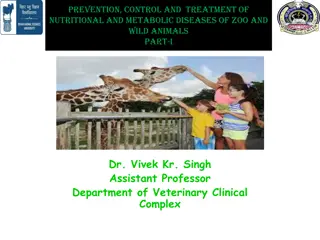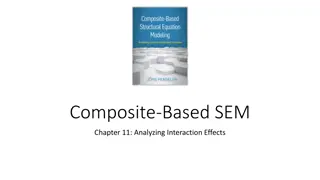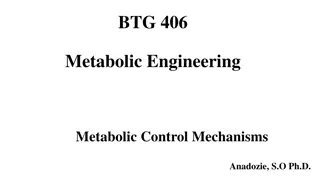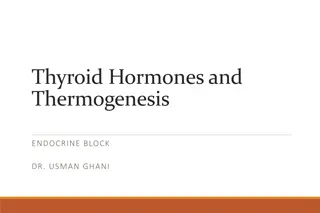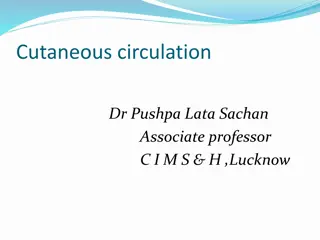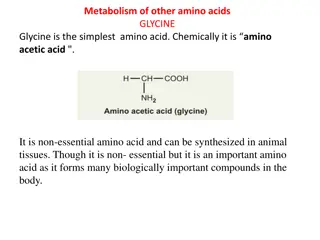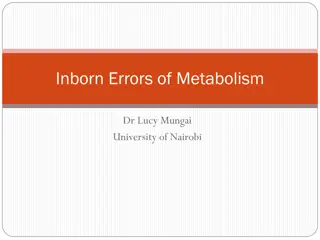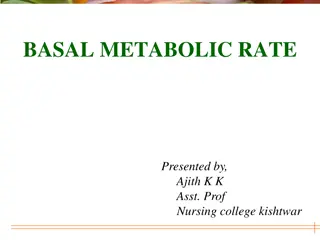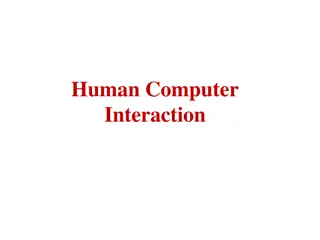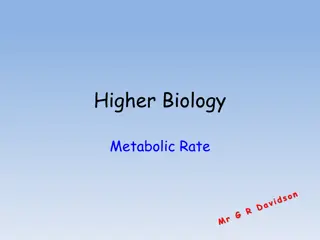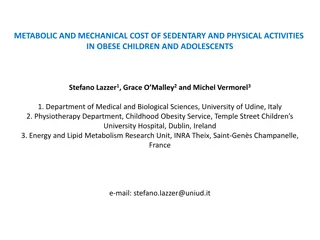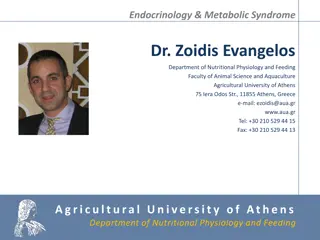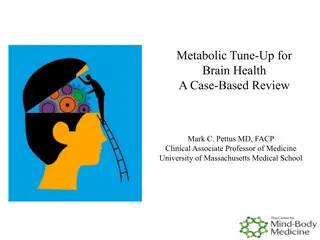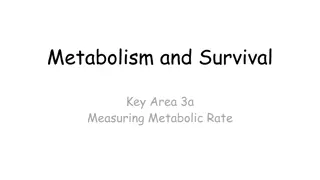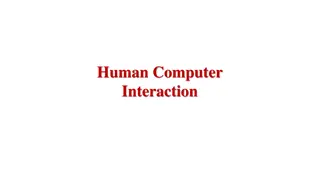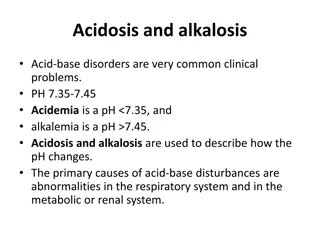Understanding Metabolic Interaction in Society
In a capitalist society, metabolic interactions and exchanges are influenced by one's income and occupation quality. This separation between human existence and nature is emphasized in the relation between wage labor and capital. Marx's writings highlight how labor is essential for the metabolic interaction between man and nature, representing a universal condition across various social forms. The labor process is described as purposeful activity for producing use values, marking an everlasting nature-imposed condition of human existence.
Download Presentation

Please find below an Image/Link to download the presentation.
The content on the website is provided AS IS for your information and personal use only. It may not be sold, licensed, or shared on other websites without obtaining consent from the author. Download presentation by click this link. If you encounter any issues during the download, it is possible that the publisher has removed the file from their server.
E N D
Presentation Transcript
2. Metabolism 2. Metabolism Unlike ancient society where only the privileged could exchange this or that [item], everything can be possessed by everybody [in capitalist society]. Every metabolic interaction can be conducted by everyone, depending on the amount of money of one s income that can be transformed into anything: prostitute, science, protection, medals, servants, cringer everything [becomes a] product for exchange, just like coffee, sugar, and herring. In the case of rank [society], the enjoyment of an individual, his or her metabolic interaction is dependent on a certain division of labour, under which he or she is subsumed. In the case of class [it is dependent] only on the universal means of exchange that he or she can appropriate Where the type of income is still determined by the type of occupation, and not simply by the quantity of the universal medium of exchange like today but by the quality of one s occupation, the relationships, under which the worker can enter into society and appropriate [objects], are severely restricted, and the social organ for the metabolic interaction with the material and mental productions of the society is limited to a certain way and to a particular content from the beginning. Marx (March 1851) London Notebook. Reflection. MEGA2 IV/8. 1986: 233-34 Daniels, (8 February 1851) Letter to Marx. MEGA2 III/4, 1984: 308 1
Metabolism developed Metabolism developed It is not the unity of living and active humanity with the natural, inorganic conditions of their metabolic exchange with nature, and hence their appropriation of nature, which requires explanation or is the result of a historic process, but rather the separation between these inorganic conditions of human existence and this active existence, a separation which is completely posited only in the relation of wage labour and capital. Marx (1857-58) Grundrisse. 1973: 489; MECW 28: 413 Since actual labour is the appropriation of nature for the satisfaction of human needs, the activity through which the metabolism between man and nature is mediated Labour as a universal condition for the metabolic interaction between nature and man a natural condition of human life [that] is independent of, equally common to, all particular social forms of human life This form does not express any particular historical (social) relation of production entered into by human beings in the production of their social life; it is rather the general form Marx (1861-63) Economic Manuscripts. MECW 30: 40, 63 2
Metabolic interaction Metabolic interaction When man engages in production, he can only proceed as nature does herself, i.e. he can only change the form of the materials. Furthermore, even in this work of modification he is constantly helped by natural forces. Labour is therefore not the only source of material wealth, i.e. of the use-values it produces. As William Petty says, labour is the father of material wealth, the earth is its mother. Marx (1867) Capital, Volume I. 1976: 133-34; MECW 35: 53 The labour process is purposeful activity aimed at the production of use values. It is an appropriation of what exists in nature for the requirements of man. It is the universal condition for the metabolic interaction [Stoffwechsel] between man and nature, the everlasting nature-imposed condition of human existence, and it is therefore independent of every form of that existence, or rather it is common to all forms of society in which human beings live. Marx (1867) Capital, Volume I. 1976: 290; MECW 35: 194 3
Metabolic rift Metabolic rift Large-scale landownership, on the other hand, reduces the agricultural population to a constantly decreasing minimum and confronts it with a constantly growing industrial population conglomerated together in large towns; in this way it produces conditions that provoke an irreparable rift in the interdependent process between social metabolism and natural metabolism prescribed by the natural laws of the soil. The result of this is a squandering of the vitality of the soil, and trade carries this devastation far beyond the bounds of a single country (Liebig). Marx, MEGA2 II/4.2. 2012: 752-53 Marx (1894) Capital, Volume III. 1981: 949; MECW 37: 799 The new [English] translation, Economic Manuscript of 1864-1865, unfortunately overlooks the fact that Engels modified the sentence and obscured the meaning: In this way it produces conditions that provoke an irreparable rift in the interdependent process of social metabolism, a metabolism prescribed by the natural laws of life itself (Marx, 2015: 798). Saito, Karl Marx s Ecosocialism. 2017: 205-06 4
Rationally govern the metabolism Rationally govern the metabolism From the standpoint of a higher socioeconomic formation, the private property of particular individuals in the earth will appear just as absurd as the private property of one man in another man. Even an entire society, a nation, or all simultaneously existing societies taken together, are not the owners of the earth. They are simply its occupiers, its beneficiaries, and they have to bequeath it in an improved state to the succeeding generations as boni patres familias [good heads of household]. Marx (1864-65) Economic Manuscript. 2015: 763 Marx (1894) Capital, Volume III. 1981: 911; MECW 37: 763 The associated producers, govern their metabolic interaction with nature rationally, bringing it under their collective control instead of being dominated by it as a blind power; accomplishing this metabolism with the smallest expenditure of energy and in conditions most worthy and appropriate for their human nature. Marx (1864-65) Economic Manuscript. 2015: 885 Marx (1894) Capital, Volume III. 1981: 959; MECW 37: 807 5
Session 2. Metabolism Session 2. Metabolism Key ideas Metabolic interaction Metabolic rift Rational regulation of metabolism Communism Questions 1) How did Marx learn about metabolism? 2) What is the key to the metabolic interaction of humanity and nature? 3) What is meant by metabolic rift? 4) How is metabolic restoration achieved? 6
